Why do some democracies fail to help their poor? Ethnic diversity and identity politics may provide answers
Democracies are traditionally seen as more effective at helping the poor than non-democracies. Chingun Anderson writes that although evidence for this is convincing, there are cases where the democratic system does little to benefit lower socioeconomic groups. He argues that a possible reason for this is that higher ethnic diversity negatively affects the successful organisation that is needed to campaign for pro-poor policies.
Previous research makes a convincing case that democracies should benefit the poor more than non-democracies. This is because enfranchisement in theory allows poorer citizens to pressure their government to provide services that improve their welfare. If the poor vote on whether or not the government is alleviating poverty, they can easily vote out the incumbent and elect someone else to further that interest. Indeed, studies show that democracy is associated with higher spending in education and health in Africa and Latin America and better health outcomes.
Although the positive case for democracy is convincing, there are often situations where democracy has not benefited the poor. In poorer democracies such those in Southeast Asia or Sub-Saharan Africa, politicians regularly divert spending away from areas that most benefit the poor or fail to implement policies that improve the services that are known to benefit the poor, such as immunisation, pre and postnatal care, and access to safe water and sanitation. Even in wealthy democracies, there is huge variation in social welfare spending. Scandinavian democracies spend significantly more on welfare and have lower poverty outcomes relative to Britain or America. But why is this the case?
It is easy to blame politicians for not addressing poverty but it would be more fruitful to understand what determines their policymaking decisions. For one thing, politicians are not likely to provide services to the poor unless the costs of not providing those services are greater than the benefits. The poor can increase the costs by organising and pressuring politicians – through voting or popular protest – to provide services that improve their welfare. If they do not organise, however, politicians will have little incentive to provide pro-poor services and will likely prioritise government resources to other groups they wish to favour (business community, landowners, etc.)
Even successful organisation will often run into issues. A notable one is ethnic diversity. Studies show that higher ethnic diversity is associated with less participation in social activities or groups, weaker social sanctioning to enforce contribution to public goods, and lowers levels of trust. As a result, higher ethnic diversity negatively affects the successful organisation that is needed to provide public services. Indeed studies in Africa have shown, higher levels of ethnic diversity is negatively associated with the quantity and quality of public services, as measured by the percentage of paved roads, the efficiency of the electricity network, and years of schooling of the population. This is also notable in rich democracies. In US cities, higher ethnic diversity is associated with lower public spending on education, roads, sewers, and trash pick-up. Furthermore, welfare payments are less generous in American states that have a higher proportion of minorities. At the country level, there is a negative correlation between social welfare spending and ethnic diversity. Perhaps this provides an explanation of why Scandinavian countries have the biggest welfare states since they also are highly ethnically homogenous.
If the poor are not organising as a consequence of ethnic diversity then they are less likely to pressure politicians to improve their welfare. So even if democracies are endowed with institutional mechanisms (enfranchisement, freedom of speech and protest, majority rule) that allow the poor to influence government policy more than non-democracies, the effectiveness of those mechanisms is contingent on how the poor organise. From this, it follows that if the lower socioeconomic groups are ethnically divided, they are less likely to pressure their government to produce pro-poor policies and as a result their welfare will be negatively affected. If the poor are ethnically homogeneous, they are more likely to pressure the government to improve their welfare. In order to see if there is a relationship, I test how democracy is associated with poverty outcomes conditioned on ethnic diversity across 136 to 140 countries.
Figure 1: Democracy on Log of Infant Mortality Rates
Figure 2: Democracy on Log of Child Mortality Rates
Graphs 1 to 2 show the association between democracy and log of infant and child mortality rates (a good measure for absolute poverty) conditioned on the level of ethnic fractionalisation. When ethnic diversity is at 0 (or completely ethnically homogenous), democracy is associated with 21 and 22 percent decrease in infant and child mortality rates respectively. When there is complete ethnic diversity, democracy is associated with 16.5 and 14 percent increase in log of infant and child mortality rates.
Figure 3: Democracy on Log of Infant Mortality Rates
Figure 4: Democracy on Log of Child Mortality Rates
Graphs 3 and 4 show that when there is low ethno-income “crosscuttingness” (a proxy measure for whether income groups are ethnically homogenous or not, low implies that income groups are ethnically homogenous while high crosscuttingness implies income groups are more ethnically diverse), democracy is associated with an absolute decrease 0.7 and 0.8 in log of infant and child mortality rates when there is low crosscuttingness (accounting for interaction effect). At high cross-cuttingness, however, democracy is associated with a 0.2 increase in log of infant and child mortality rates. It is important to note, that all of the relationships in the graphs are not statistically significant but the results are interesting and warrant further investigation.
The results suggest that focusing on the relationship democracy and poverty outcomes alone is not sufficient. Substantial research has shown that people form groups to further their interests and this applies also in political economy. Democracy is more likely to improve the welfare of the poor if this group organises on economic grounds. If ethnic divisions among the poor hinder effective organisation, then an important policy implication could be the need to promote a common identity among the poor. Some governments such as those in Tanzania implemented policies to promote national and socioeconomic identities with reasonably successful results. This is particularly important for European democracies such as Britain because they are likely to become more ethnically diverse due to immigration in the coming decades. The possible negative effects of ethnic diversity on the British welfare state and poverty is important to understand and to prepare for.
—
This article is based on a longer paper Ethnic Divisions, Cross-Cutting Cleavages, Poverty in Democracies. Access the full PDF here.
Note: this post represents the views of the author, and not those of Democratic Audit or the LSE. Please read our comments policy before posting.
—
 Chingun Anderson is PhD Government student at the University of Essex. His dissertation is on how ethnic diversity of the poor affects poverty in democracies. He tweets @ChingunAnderson.
Chingun Anderson is PhD Government student at the University of Essex. His dissertation is on how ethnic diversity of the poor affects poverty in democracies. He tweets @ChingunAnderson.

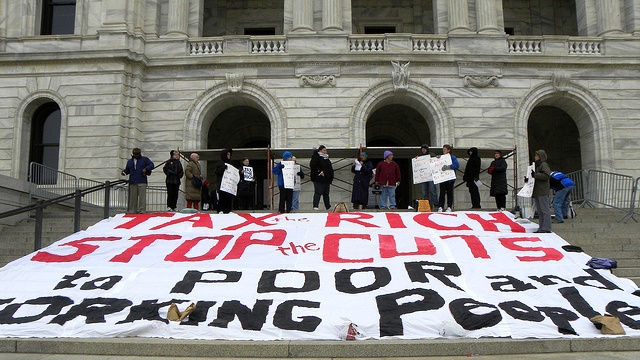
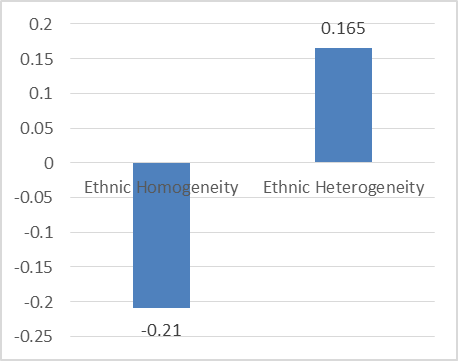
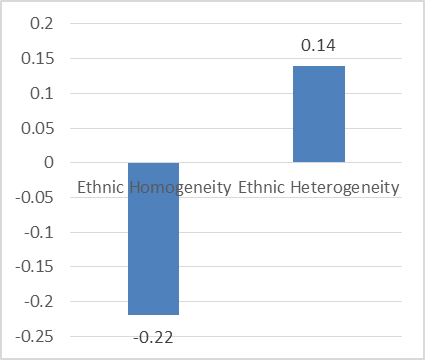
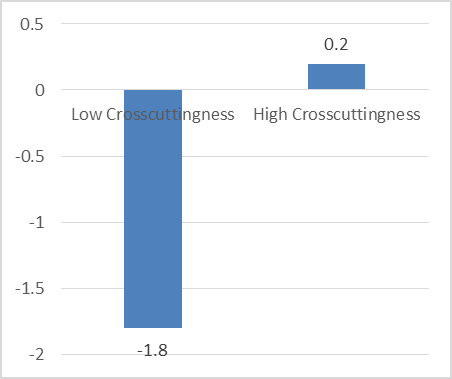
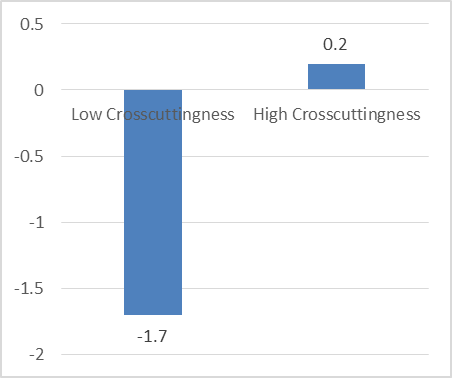




 Democratic Audit's core funding is provided by the Joseph Rowntree Charitable Trust. Additional funding is provided by the London School of Economics.
Democratic Audit's core funding is provided by the Joseph Rowntree Charitable Trust. Additional funding is provided by the London School of Economics.
Why do some democracies fail to help their poor? #Ethnicdiversity and identity politics may provide answers https://t.co/SDRqZZuoWA
Why do some democracies fail to help their poor? Ethnic diversity may provide an answer, argues @ChingunAnderson https://t.co/iJd54byXP2
Why do some democracies fail to help poor? Poss linked to ethnic diversity/identity politics writes @ChingunAnderson https://t.co/wr2xV6YPjy
Why do some democracies fail to help their poor? Ethnic diversity and identity politics may provide answers https://t.co/XNUHeiWP42
Why do some democracies fail to help their poor? Ethnic diversity & identity politics: Democratic Audit UK https://t.co/UXbYd52XNN
Why do some democracies fail to help their poor? Ethnic diversity and identity politics may provide answers https://t.co/IQ7JfyAPKY
@democraticaudit Are we sure this is not just correlation?
Why do some democracies fail to help their poor? Ethnic diversity and identity politics may provide answers https://t.co/nYOQSLu81v
RT Why do some democracies fail to help their poor? Ethnic diversity and identity politics may provide answers https://t.co/F7nn1mtD5s
How does ethnic diversity influence societies’ support for the poor? How does democracy fit in? @ChingunAnderson https://t.co/JYk2SX8M5c
RT @PJDunleavy: Why do some democracies not help their poor? Ethnic diversity and identity politics provide some answers https://t.co/8Bfny…
Why do some democracies fail to help their poor? Ethnic diversity and identity politics may provide answers https://t.co/H0SMjboRRd
Why do some democracies fail to help their poor? Ethnic diversity and identity politics may provide answers https://t.co/zlgwWyVBoh
My blog on why some democracies fail to help their poor. https://t.co/JGYmmrJCX3
Why do some democracies fail to help their poor? Ethnic diversity and identity politics may provide answers https://t.co/yNZ3L98aNA
RT @PJDunleavy: Why do some democracies fail to help their poor? Ethnic diversity and identity politics may provide answers https://t.co/8B…
RT @HalaroseLtd: Article by @ChingunAnderson in @democraticaudit re how ethnic diversity reduces poverty alleviation in democracies: https:…
Why do some democracies fail to help their poor? Ethnic diversity and identity politics may provide answers https://t.co/491KPll3BJ
Great article! Why do some democracies fail to help their poor? Ethnic diversity and identity politics https://t.co/d1x78lVqNY
Why do some democracies fail to help their poor? Ethnic diversity and identity politics may… https://t.co/q1CWFBHBly https://t.co/i0I4mCkrOR